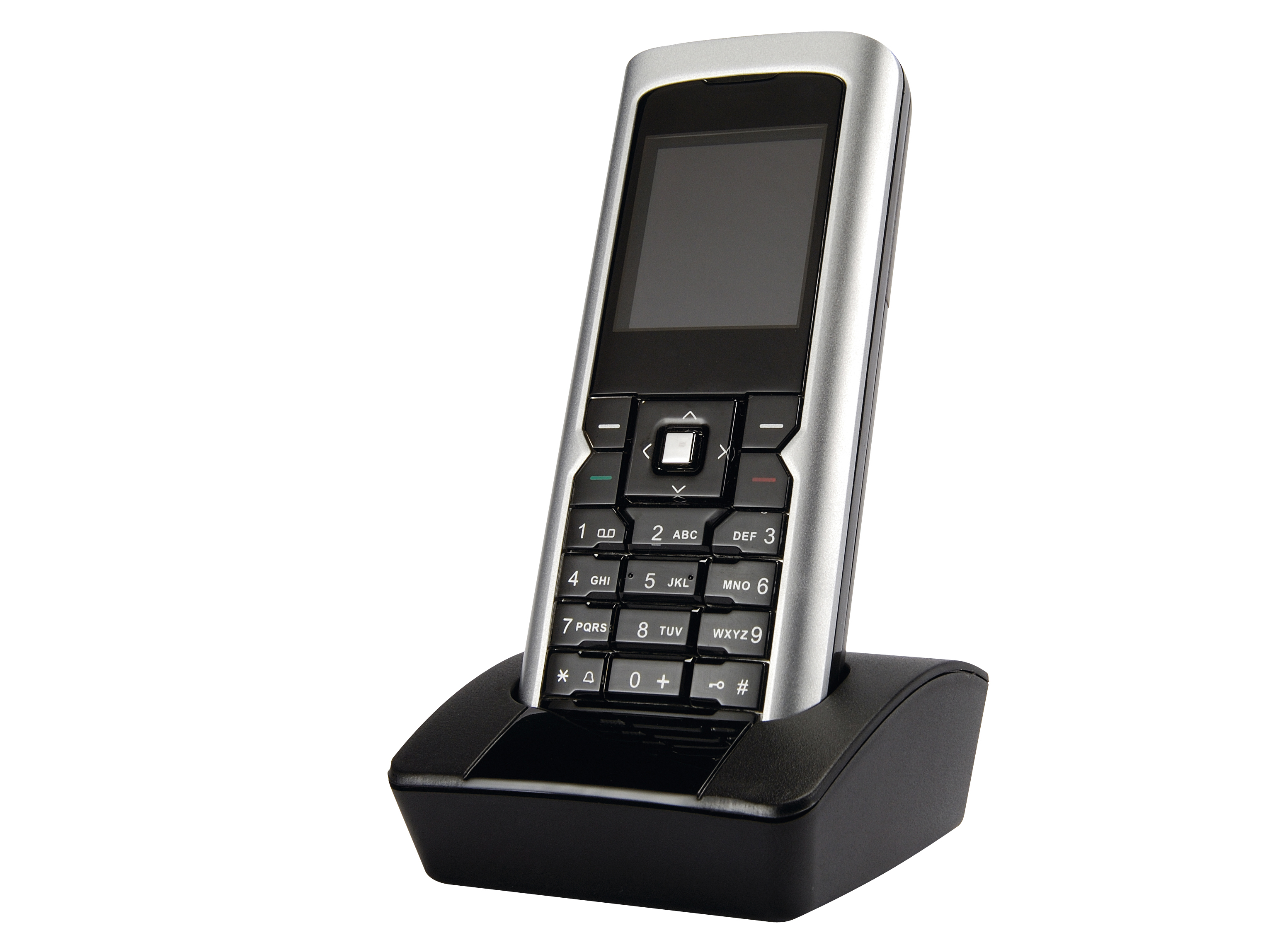TechRadar Verdict
Despite it's unusual origins, this is a fair performer
Pros
- +
Cheap overseas rates
Makes most of VoIP technology
Cons
- -
Little thought applied to luxury
Why you can trust TechRadar
Yes, that's Pirelli. As in the tyre manufacturer, which has branched out from wheel covers and dirty calendars to fields as diverse as real estate and broadband solutions. Its latest product in the latter line could well be the one that thrusts it into the mobile communications limelight: a dual-mode phone, suitable for use as a mobile or wireless VoIP handset.
In terms of usability, it's an easy to understand unit. The interface apes those available from most mobile manufacturers, with a particular slant towards the well designed front-end on Sony Ericsson's excellent range of phones. The home screen offers instant feedback on the status of the phone, featuring signal strength monitors for both WLAN and mobile connections pasted on top of a customisable background.
However, place this next to virtually any mobile phone, and you'll notice the visual problem straight away: the appearance of the Discus is a step below. It looks rather cheap. Still, next to other dual-mode phones, the comparison is a little more favourable. There's no need for a separate base station, such as that included with Skype's attempt. The DP L10 contains a Wi-fichip of its own, so it can search for and connect to wireless networks without any external hardware requirements.
Its looks might be basic, but there's no skimping on the features. There's a camera, full WAP access, multimedia messaging, and everything else you might expect from a mobile, although many of the features are only available if you're making use of a SIM card.
Again, though, we have reservations. It feels a little like Pirelli has made sure all of the boxes have been ticked, but not invested too much in luxury. The screen seems like it's from the first generation of colour mobiles; the buttons are basic though well lit; and the camera is rather low resolution. Even the construction of the phone feels a little weak for this to be seriously considered as a permanent pocket companion.
Connectivity setup
The straightforward menus make setting up the phone and connecting to networks easy enough, although it's not as simple as you might hope. The important bits, like Wi-fisearching and profile switching, are tucked away three or four menus deep, compounding its lack of usability. It's certainly suggested that the phone will automatically detect the presence of networks you've preprogrammed - and even switch between Wi-finetworks during a call - but we were unable to replicate this in practice.
There's also no provision to automatically switch between Wi-fiand GSM, so if you happen to exit the network coverage area of your router you'll be greeted by a couple of beeps and the disconnection of your call. While switching between VoIP and mobile lines is a technical nightmare, we're of the opinion that it's exactly what the dual-mode phone needs to succeed.
Sign up for breaking news, reviews, opinion, top tech deals, and more.
If you're a serious mobile user, chances are you'll already be subscribing to a contract that offers a number of free minutes of calls every month. The Coms.com service, on the other hand, charges you at least 2p per minute, or 12p for calls to mobiles. While we can see the benefit for non-contracted mobile customers, the fact remains that recent trends in mobile contracts have acted against Pirelli's fortunes. Why switch back to VoIP when you get home? Why use VoIP at all, for that matter?
Well, there are the flat calling rates to consider. Calling Europe, the USA, and even far off locales like Australia is charged at the same 2p per minute, a darn site easier and cheaper than dealing with international calling cards or most telephone providers' rates. If you're running a business or you're a long way from home, a dual-mode phone is convenient and highly cost effective.
There's also the second line that comes along with your VoIP service. Once you're registered, you get a free phone number - currently with a London dialling code - that anyone else can call as if it were a standard landline. It's a perfect situation if you don't have a fixed number at home. You also get the traditional benefit of free VoIP-to-VoIP calls between you and other Coms users, too.
The call quality is reasonable, but as with every other VoIP systems it suffers from degradation when networks are busy, and a slight delay as your speech reaches your recipient. Even so, for a dual mode handset, the price of the DP L10 is right even if its features might fall a little flat. If you're serious about making the most of VoIP technology, you're in reasonably good hands here. Alex Cox
